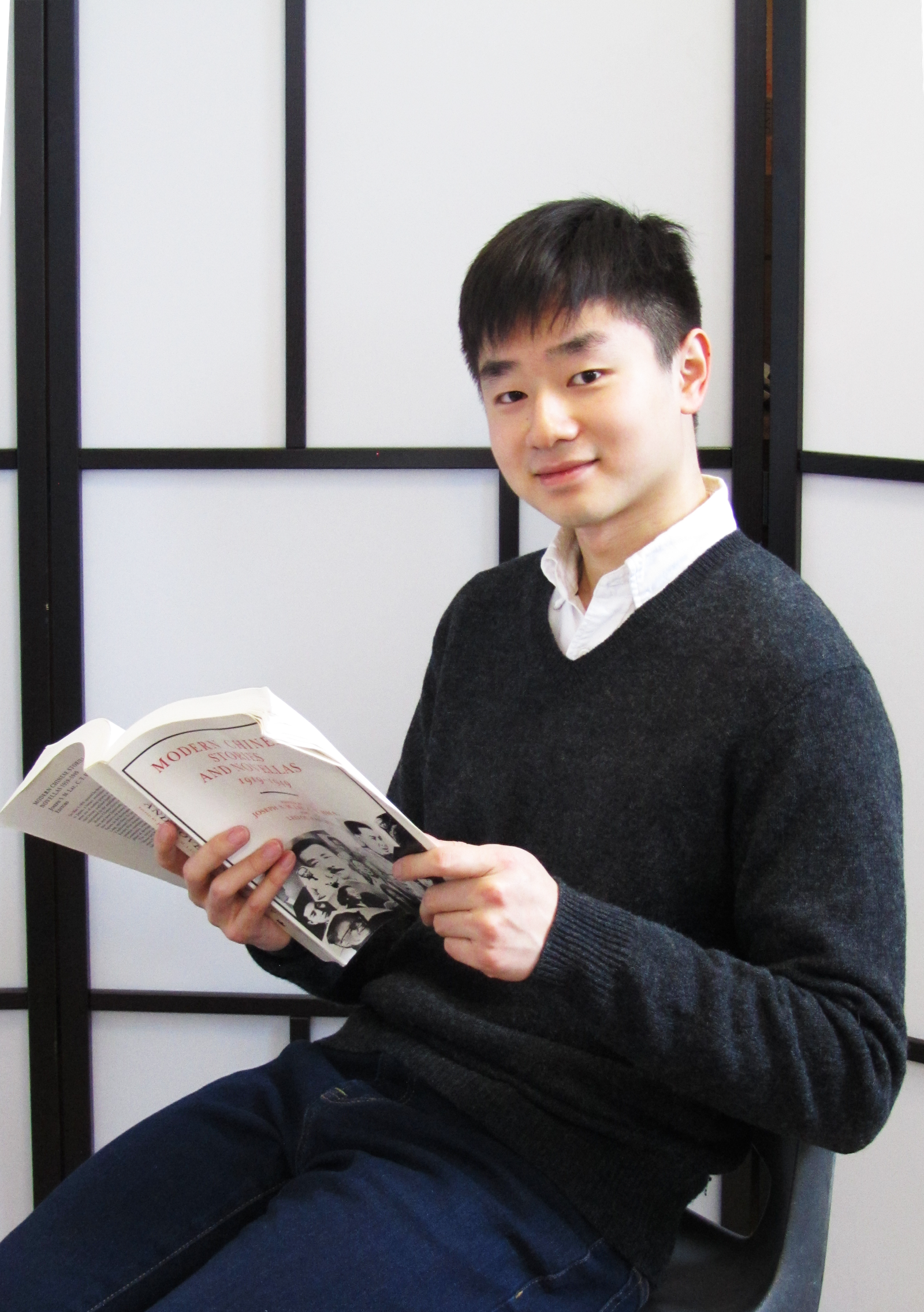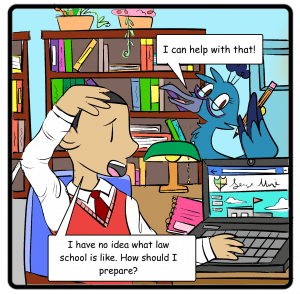We interviewed Yiwei Jin, PFAU Academic writing and applications coach, Yiwei Jin, about his 1st-year law school experience. This week’s episode is meant to give undergraduate students interested in Law School some insights into what it is really like. The lawyers as seen on TV are not necessarily representative of the real experience of studying law or becoming a lawyer. Today, we hope to dispel some of those myths.

Yiwei has a Masters in Political Science and Asian Studies from the University of Toronto, and has recently finished his first year of Law at the UofT as well. Yiwei has also spent time working as a research fellow for the Asia-Pacific Institute in Vancouver, and is a talented writer, researcher, and academic.
_
You have had experience as an undergrad, graduate student, and now a law student. What have you observed is different about these various degrees?
Yes, I studied political science in my undergrad and my graduate degree, and also just finished my first year of law school. In general, I would say that grad school is actually not that different from the upper years’ of an undergrad degree because we share a lot of similar courses in graduate school. The content is actually not that different, however, there is a lot more independent research going on in grad school. Undergrad is more about literature reviews. You are surveying the field, taking notes, and you are not really developing your original ideas in exams and essays, but rather summarizing what other scholars’ positions are. While in grad school, the focus is more on research methodology and exploring your own research interests and conducting your own research.
Law school, on the other hand, was quite different. Sometimes students like to say that law school is like high school, especially in the first year, just because everyone takes the same classes. In addition, the examination system, where you sit down for hours and write until it is finished, is very similar to undergrad exams or standardized exams in high school. The evaluation system is kind of similar to undergrad as well. However, once you get to year two or three, you start to have seminars, research courses, and experiential learning, which is similar to graduate school.
What parts of the Law School application process do you think are relevant to your time in Law School?
If we think about the law school application process, there are two parts: LSAT and personal statement. Some people think a high LSAT score is demonstrative of one’s ability to succeed in law school. However, personally, I do not think that it is such an accurate assessment of whether you are fit for studying in law school or not. Maybe the reading comprehension section is similar to the extent that you also are required to read and analyze unfamiliar passages in law school. For example, if you read a business transaction case, you are not going to be knowledgeable of the specifics of the business case, but need to figure it out on your own. You are asked to do similar things for the reading comprehension section on LSAT, so I think there are some parallels there.
On the other hand, the personal statement is something that I think is more useful because it allows you to express your skills and knowledge to the admissions committee. Learning to sell yourself in a single statement is a useful skill for the job application process during and after law school. When you think about job applications after law school and during law school, being able to construct a personal narrative and write within the moments that you are given is a valuable skill set.
What would you recommend students who are thinking of Law School consider before applying?
There are two things to consider. The first thing is the cost of law school, both financial and personal, as well as the return. For example, UofT has one of the highest tuition fees, which is around 30,000/year. Other institutions might be slightly lower. The cost does not necessarily reflect the quality. I do think you can receive a quality degree in most universities. Keep in mind that law school is a professional degree. At the end of the day, most people go to law school to get a job, but the ability or possibility to get a job and the school’s quality of education are not necessarily correlated. Just because you got an amazing legal education doesn’t guarantee that you’re going to be competitive in the job market. I think that’s something students should consider.
Another thing that I recommend before applying to law school is to talk to as many people as you can in the legal field. Like mentioned in the beginning, what people think of being a lawyer is very different from what being an actual lawyer entails. Talk to law students, recent law grads, and legal professional, and ask them about their experiences and whether going to law school is something that you want to do.
Recommended Books and Resources
The Law School Book: Succeeding at Law School by Allan C. Hutchinson
The Legal Writing Handbook: Analysis, Research, and Writing by Laurel Currie Oates, Anne Enquist, Jeremy Francis
Thank you, Yiwei, for sharing the excellent advice with us and our readers!
Missed the podcast? Watch here:
_
_
_
_
For more advice about writing, check out our weekly podcast, videos, or subscribe to our monthly newsletter.
_
To get more help with your assignments, book a 20 minute discovery session with us and start your journey to reaching your full potential on the page, and in life.
Both the written, visual, audio, and audiovisual content of this post has been created by and is the intellectual property of Lisa Pfau and PFAU Academic Writing. Please do not replicate any of the above content without our consent. However, please do feel free to share this post and its authorship widely.



